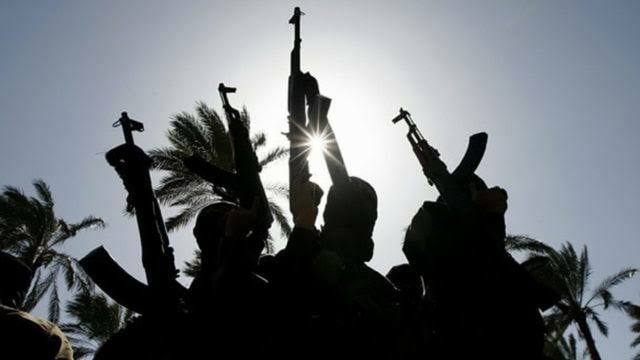Department of State Services (DSS), the Office of the National Security Adviser (ONSA), the Economic and Financial Crimes Commission (EFCC) have identified cut off the finances of terrorists as a major way of tackling terrorism in the country.
The stakeholders arrived at the resolution at a workshop for officers drawn from the DSS, ONSA, EFCC, ICPC, immigration, customs, judges among others.
The director-general of DSS, Yusuf Magaji Bichi, who spoke yesterday at the closing ceremony of a workshop on “Terrorism Financing Risk (TFR)” designed for law enforcement agencies (LEAs) and judicial officers at the DSS headquarters, Abuja, declared that the cutting off terrorism funding would bring an end to the activities of terrorists in the country.
The DG called for collaboration in intelligence gathering and sharing among security agencies in order to tackle the challenges of terrorism financing.
On the first day of the workshop, Bichi had said, “The ever-changing nature and sophistication of threats makes it imperative for security operatives to be critical thinkers in order to fashion out better and efficient ways to tackling threats. Among the evolving global crimes, is money laundering and terrorism financing, which requires the development of a working National Anti-Money Laundering and Countering the Financing of Terrorism (AML/CFT) regime for the country.”
A participant at the workshop, Justice Obiora Egwuatu, said it had helped him to understand the intricacies in the handling of cases of terrorism and terrorism financing.
He also appreciated the job and sacrifices of the security agencies in going all out everyday to tackle insecurity and terrorism and ensuring that there is peace in Nigeria, stating that going forward his experiences and what he has planned from the workshop would come to bear with his job as a justice of the Federal High Court.
Also, DSS director of operations, Joseph Dashwap, who focused on Nigeria’s efforts to meet the requirements of the Inter-Governmental Action Group against Money Laundering in West Africa, said the country had enacted national legal frameworks to combat money laundering and terrorism financing, namely: “The Money Laundering (Prevention and Prohibition)Act, 2022; Terrorism (Prevention and Prohibition) Act, 2022; and Proceeds of Crime (Recovery and Management) Act, 2022. ”
Dashwap said, “On its part, the DSS, as the premier domestic intelligence agency saddled with the mandate to detect, prevent and investigate threats to national security, is aware that any effective counter-terrorism and counter-insurgency strategy begins with the recognition that money/logistics are like oxygen to the survival and effectiveness of terrorist organisations.





